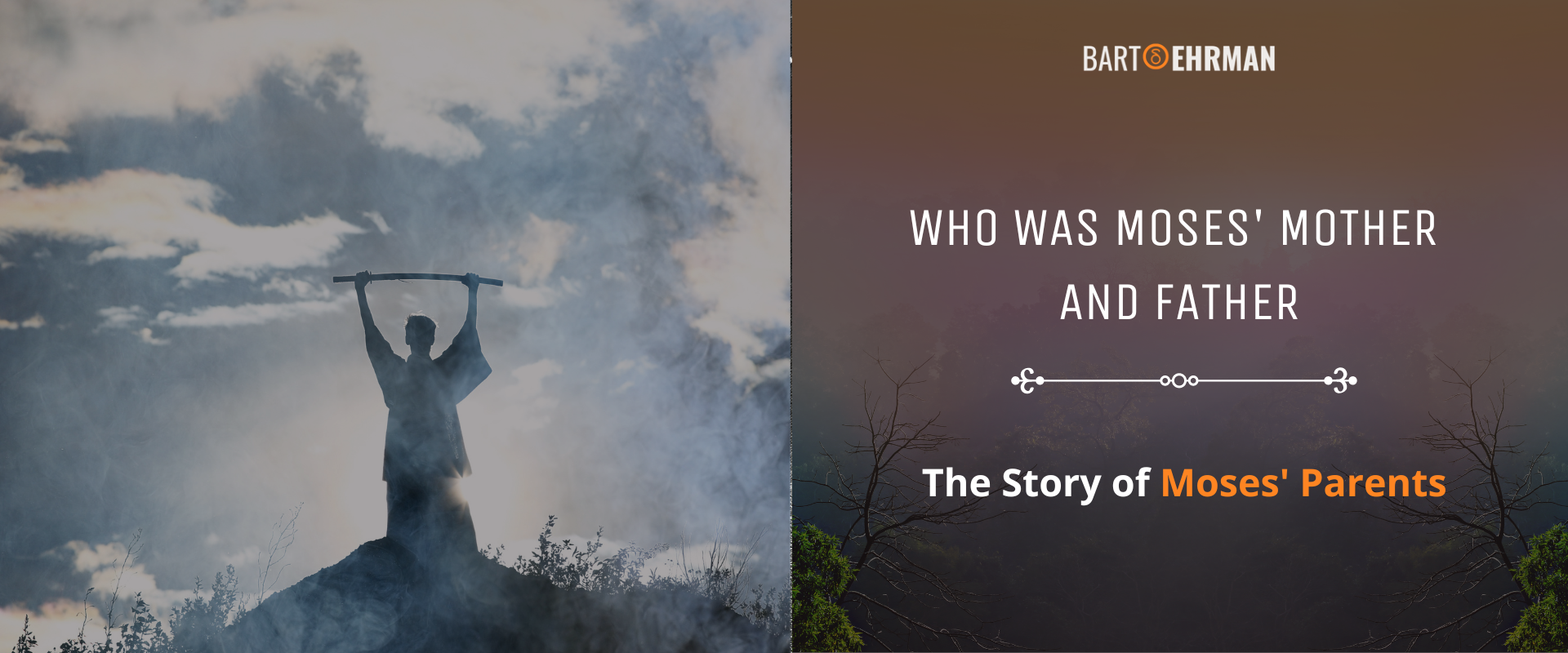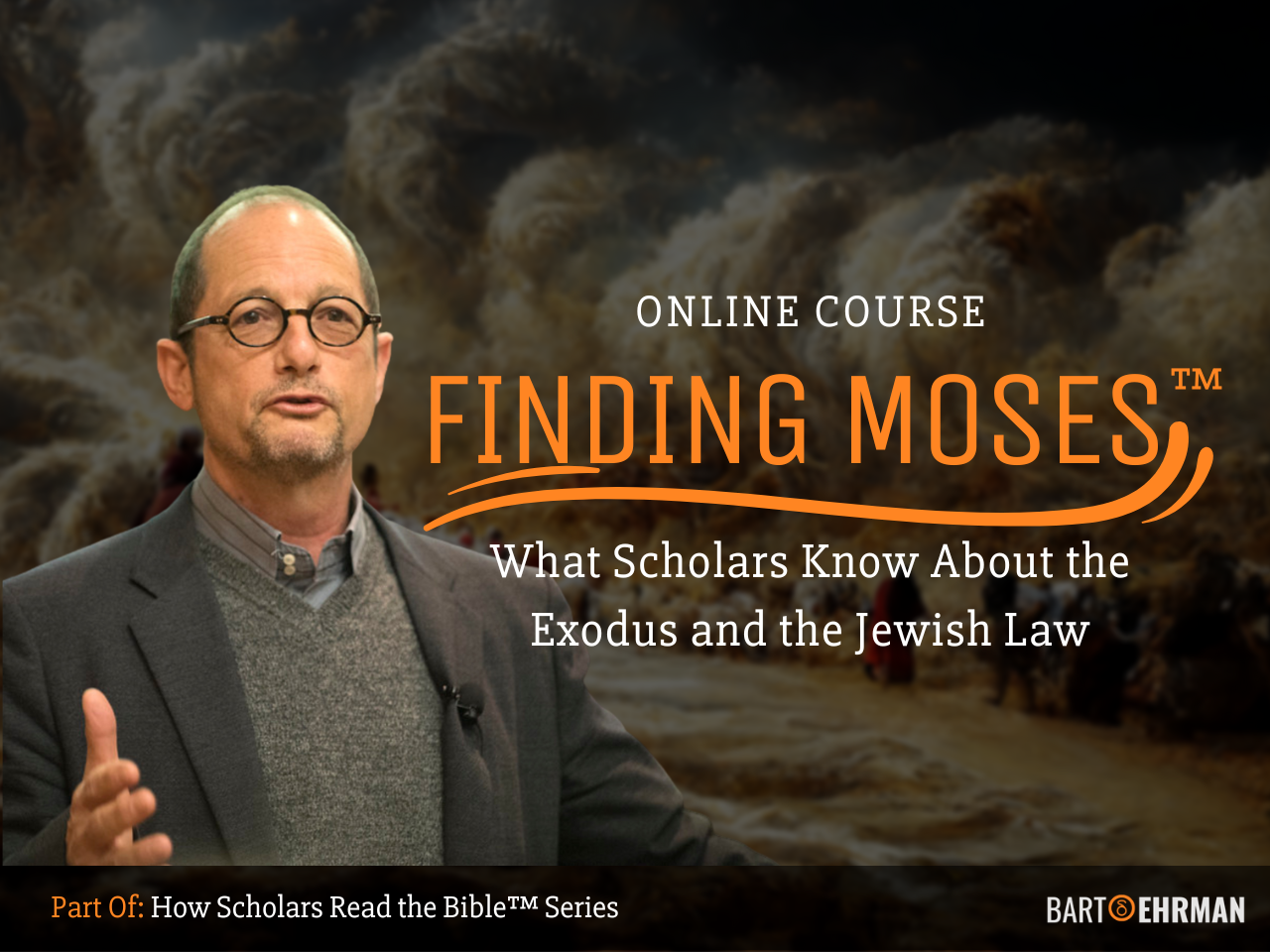Who Was Moses' Mother and Father?

Written by Marko Marina, Ph.D.
Author | Historian | BE Contributor
Verified! See our guidelines
Verified! See our editorial guidelines
Date written: August 17th, 2023
Disclaimer: The views and opinions expressed in this article belong to the author and do not necessarily match my own. - Dr. Bart D. Ehrman
Who was Moses’ Mother and Father? As the most important Jewish prophet, Moses’ life is intertwined with Judeo-Christian tradition. However, his parents are often overlooked in the grand narrative.
In this exploration, we journey back to a time of profound significance for Jewish history. We are delving into the lives of Moses’ mother and father, shedding light on the significant but obscure events in their narratives by examining the scriptures.

The Importance of Context: Moses' Family and Egypt
To better understand Moses’ parents, we must return to a pivotal era when the Israelites resided in Egypt. With the ascent of a new pharaoh, anxiety arose over the growing Hebrew population and its potential threat to the kingdom.
As a countermeasure, the pharaoh enacted harsh measures of subjugation, reducing them to a state of slavery (Exod. 1, 8-14). However, when these attempts yielded unexpected outcomes, the pharaoh took the extreme step of issuing orders to end the lives of Jewish infants (Exod. 1, 22).
Against this backdrop, we encounter Moses’ mother, Jochebed, for the first time.
Moses’ Parents: Mother’s Heroic Attempt to Save Her Son
To protect her newborn child from Pharaoh’s decree to kill male infants, Moses’ mother concealed him for three months. Eventually, unable to hide him any longer, she skillfully crafted a basket from bulrushes and placed him among the reeds by the riverbank. Pharaoh’s daughter found the Hebrew child and showed compassion.
Why did Moses’ mother put him in a basket? The simple answer would be: It was the only way to save her child from certain death.
As mentioned in my previous article, the story of Moses’ birth draws on folkloric motifs widespread across the ancient world. The most similar story is that of Sargon of Akkad, a powerful ruler of the Akkadian Empire in the early third millennium BCE.
Examine the parallel accounts of the births of Moses and Sargon in the table provided below.
Moses’ Birth
(Exod. 2, 1-4)
Now a man of the tribe of Levi married a Levite woman, and she became pregnant and gave birth to a son... But when she could hide him no longer, she got a papyrus basket for him and coated it with tar and pitch. Then she placed the child in it and put it among the reeds along the bank of the Nile.
The Birth of
Sargon
Because my mother did not want anyone in the city of Asupiramu to know that she had given birth to a child, she left me on the bank of the Euphrates River in a basket woven from rushes…The river carried my basket down to a canal, where Akki, the royal gardener, lifted me out of the water and reared me as his own.
Parallels Between Sargon of Akkad & Moses
Do you want to know more about these fascinating parallels? Please read Victor Matthews’ and Don Benjamin’s excellent study Old Testament Parallels: Laws and Stories from the Ancient Near Est.
Furthermore, according to the story in Exodus, Moses’ mother ensured he was adopted by the Pharaoh’s daughter, who provided him with a safe life in Egypt. In other words, the story of Moses’ mother in Exodus is a testimony of love and self-sacrifice. She knew her son wouldn’t survive if he had stayed with her.
Interestingly enough, the Pharaoh’s daughter was the one who gave Moses his name, signifying that she rescued him from the water (“Moses” means “to draw out”).
What is Moses’ Mother’s Name? The Book of Numbers (26:59) tells us that her name is Jochebed, the daughter of Levi. Furthermore, she married Amram, with whom she also had two other children. Their names were Aron and Miriam.
The Book of Exodus reveals that she was also his husband’s aunt, posing a potential problem. We will address this question shortly!
Moses’ mother’s name is also significant. As observed by Carol Meyers in his Commentary on Exodus, she is the first biblical personage whose name contains the name of God. In other words, the meaning of Jochebed is closely related to God’s name (Yahweh).
You must be wondering by now who Moses’ father is! Let’s take a look and find out.
Moses’ Parents: The Father and the Story of the Noble Origin
The first mention of Moses’ father is short and simple: “Now a man of the tribe of Levi married a Levite woman, and she became pregnant and gave birth to a son (Exod. 2, 1-2).”
Later on, we discover three pieces of information about Moses’ father:
- His name was Amram
- He was a son of Kohath (one of three Levitical clans)
- He was 137 years old when he died (Exod. 6, 18-20).
How old was Amram when Moses was born? The exact age of Amram at the time of Moses’ birth is not mentioned in the Old Testament.
However, an apocryphal document from the 2nd century CE entitled the “Testament of the Twelve Patriarchs” gives us one theory. It implies that Amram and Jochebed were respectively 116 and 119 years old when Moses and Aaron were born.
Early rabbinic tradition, as evident in one rabbinic interpretation of the Torah called “Targum Pseudo-Jonathan” from the 3rd century CE, concurred with the notion that Moses’ parents were old when he and his brother were born.

WHO WAS MOSES' MOTHER AND FATHER? The Tribe Levi
Based on the information in the Biblical text, we can deduce that Amram is a prominent figure in the early history of the Israelites. To be more specific, Moses’ father was from the tribe of Levi.
Why is that important?
The tribe of Levi was one of the twelve original tribes of Israel, tracing its lineage back to Jacob, who is revered as the patriarch of the Israelites. This lineage is rooted in Jacob’s son Levi, as indicated in Gen. 46:11. The tribe derives its name from this ancestral connection.
Amram’s descendants later became the priestly class within the Israelite community, responsible for religious duties and the Tabernacle’s maintenance.
Married to His Aunt? Amram and Jochebed
Leviticus 18,12 explicitly forbids the marriage of a man to his father’s sister. How do we then explain the example of Moses’ parents and the explicit statement in Exod. 6, 20?
In his highly acclaimed Commentary on Exodus, Cornells Houtman explains that “the text in its present form raises no problems, for in the period to which the genealogy refers the laws of Leviticus had not yet been promulgated. They were not given until Mt. Sinai.”
Furthermore, this instance is one of several examples of pre-Torah Jews not observing some of the laws that are later forbidden by the Torah. Jacob, for example, is said to be married to two sisters (Gen. 29, 15-28) which is a violation of Leviticus 18:18.
Additionally, I opt to include another important insight. Carol Meyers notes that their marriage is perhaps meant to highlight or intensify the Levitical pedigree of the Israelite leaders, with both parents descended from Levi.
Conclusion: WHO WAS MOSES' MOTHER AND FATHER?
Who was Moses’ mother and father? Their names were Amram and Jochebed and they were instrumental in shaping the destiny of Moses and the Israelites!
Why did Moses’ mother put him in a basket? According to the Biblical text, Jochebed was a true hero. Without her self-sacrificing act of saving her child from the evil pharaoh, Moses would never part the Red Sea or achieve the greatness he did.
The role of both of his parents as unsung heroes shaped the destiny of a future leader, and their stories remind us that even in the shadows of history, the quiet determination of individuals can alter the course of history.
But does this captivating narrative of Moses and his parents solely rest in the realm of powerful storytelling, or is it rooted in historical reality? To uncover the truth behind the myth, you need to explore Moses’ life from a scholarly perspective.
The best way to do that is to join Bart’s course “Finding Moses”. It will give you a chance to experience an enlightening journey into the historical context of Exodus, exploring the intersections of faith and history!

